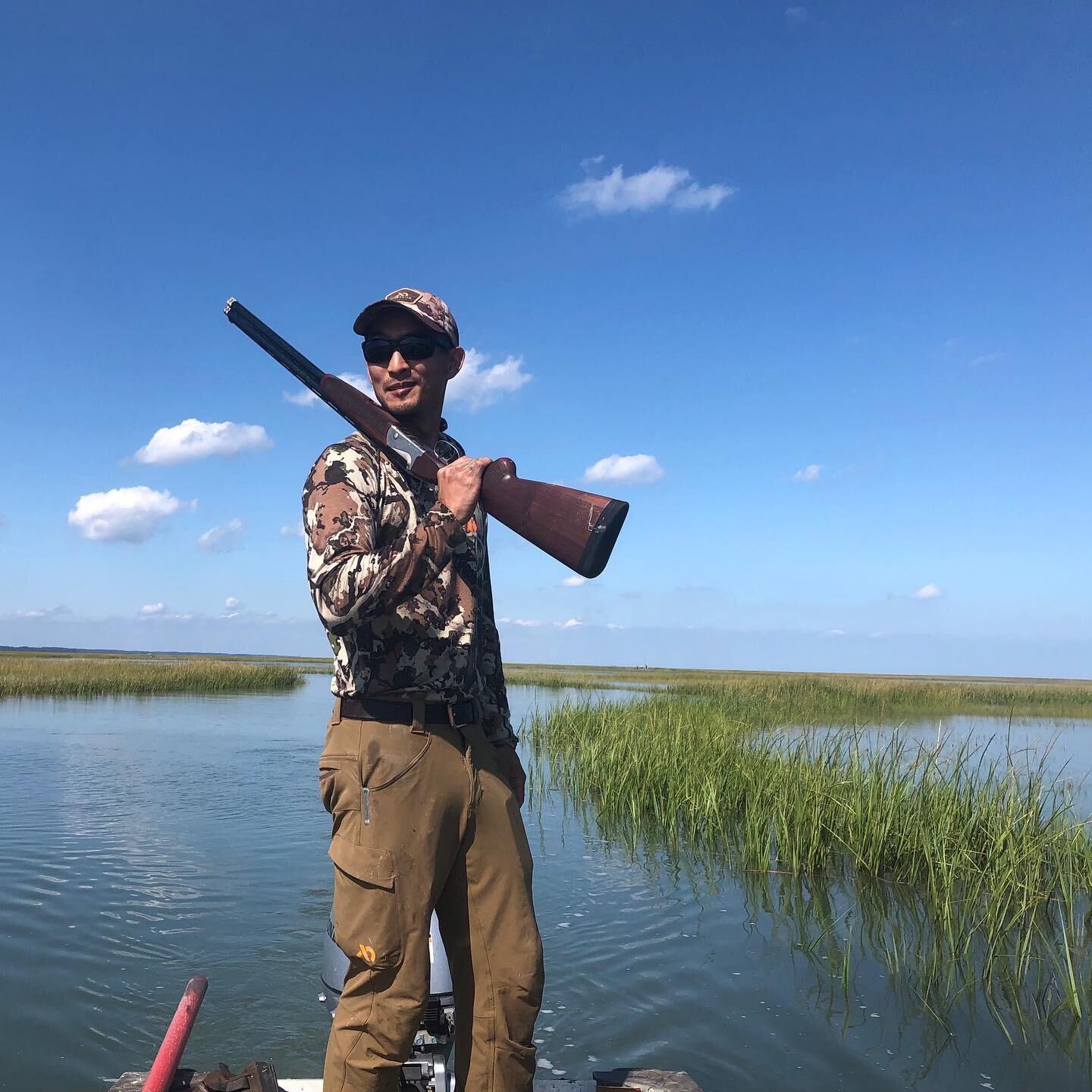Better Safe than Waste
Shawn Swearingen for SPLIT REED
The sun begins to glow along the eastern horizon. A thin layer of humidity hangs in the air just above the ground. A dull drone of mosquitoes and crickets tune upward as the sun angle steepens. The wind being non-existent, you can feel the stagnant air warm. What seems to be another layer of early morning fog slowly grows louder and darker as it draws closer to the freshly cut corn field you and your pals are hiding in. You prepared the decoys and hides, but did you prepare for what you needed to do when those “sky pandas” hit the ground? Wild game chefs and hunters Hank Shaw and Wade Truong are going to give you the skinny on how to best handle the birds in these hot conditions.
Prep work can go a long way in getting ready for a hot hunt. “I like to keep a cooler with an ice pack handy for small birds on warm days. This helps cool the birds down and keeps the flies away,” from Wade. “Plan accordingly, if you are going to be out all day, you need a way to cool down the birds just like any other meat. But if it’s just a few hours in the morning, you have some wiggle room.”
Hank agrees on the cooler with ice pack method and has an additional tip, “When the weather is close to or more than 70F, I always bring a big cooler with ice in the truck. In the field, I make sure the birds are in the shade at all times, and they are not stacked on each other. If it's really hot out, you can dip them in cool water from time to time. Set the birds on top of the bags of ice on your way home.” As Wade echoed, “Meat needs to be cooled. The last thing you want to do is pile up a bunch of hot birds that have feather insulation in the hot sun. Hanging birds somewhere there is some shade and a breeze will help a ton.”
Some of us might be chomping at the bit to do a road trip this season and depending on how far out you are planning, weather is difficult to predict. Always be sure to check the regulations when going between zones and state lines as well since it can determine how you process your birds. Check the regulations not just on possession limits and their definitions but also on the needs of keeping a wing, foot or head on cleaned birds. “You may have to clean birds to keep hunting. Birds that are shot in the guts should be cleaned as soon as possible,” conveys Wade.
Hank adds, “If you are coming back with lots of birds, simply put them in a cooler over ice. Try to keep the birds cool but dry by separating the ice and birds with a trash bag.” If you are staying in a hotel you can also keep refrigerated in a plastic bag. Be nice and keep feathers out of the hotel fridge and off the floors! “Kept cool like this, ducks will keep for several days. If you are going a bit longer, pluck and gut the birds. That will buy you a week in a cooler.”
What you keep your eyes, and nose, open for while you are cleaning is important with the warmer temperatures. Hank describes, “Green butt. It’s gangrene and it happens. If it is not past the tail of the bird, just chop it off and go from there. But, if the skin is widely greenish you have lost the bird.” Both Hank and Wade agreed, “Trust your nose. If something smells funky, give it a visual inspection. It might just be the result of some shot to the guts, but if the bird smells like hot death you’ve probably let a bird go to waste.” Hank expounds, “If the bird stinks before it has been gutted, or still stinks after it’s been gutted and washed with cold, clean water then you are in trouble. Toss it.”
A few other items to think of in these earlier and warm weather conditions. If you are shooting teal or rails in any of the delta marshes, watch out for the brackish water eating your gear! From Hank, “Brackish water will kill shotguns and motion decoys. Be sure to rinse with fresh water and dry immediately after every hunt. Not when you get home. Ducks will keep pretty well even in warm conditions, so long as they get chilled immediately after the hunt.” With that in mind, Wade adds, “Is your jon boat too hot to touch with bare hands? Probably not a good idea to pile up birds on that hot plate. Does it feel good in the shade? That’s probably the best place to hang.”
And for those early resident geese? Hank conveys, “They are so big and hold heat so well that you might want to gut them in the field to cool them off. If you don’t, and you wait too long, they can spoil by the end of the day.” “Be aware of your surroundings. Have a plan for what you’re going to do with the birds before you shoot them,” imparts Wade.
Just as you prepare all of the gear and decoys for specific hunts and conditions, be sure you are ready for what you may need to do to preserve the meat you take out from the fields and waters.
For more Split Reed Original Content click here.




